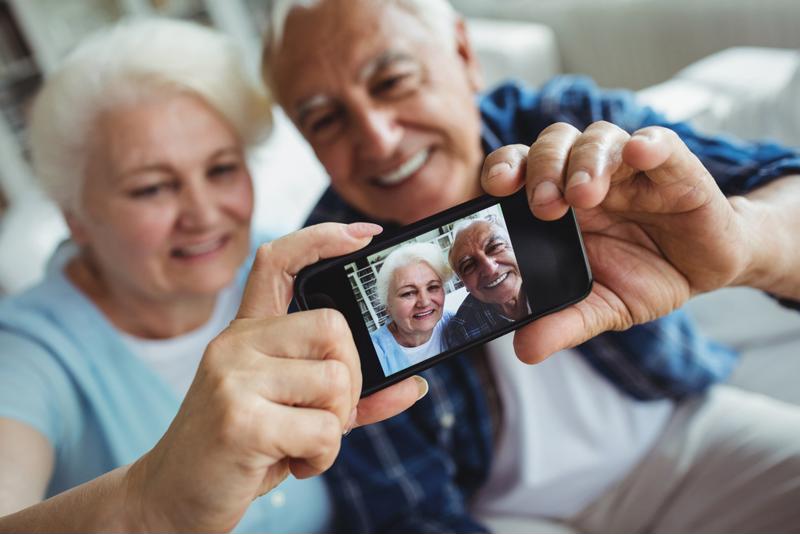
It’s not uncommon for seniors to struggle with sleep. Falling asleep early in the evenings and waking up early in the morning are regular occurrences. While medical conditions can cause these issues, so too can changes in circadian rhythms, according to the National Sleep Foundation.
No matter the cause of the disturbance, people need to get sleep and feel refreshed the next day. Here are some tips loved ones can use to deal with their inability to fall – and stay – asleep:
“Spicy foods can keep seniors up through the night.”
1. Avoid Certain Foods and Drinks
Sometimes, what you eat and drink before bedtime can throw your body out of whack, resulting in trouble getting to sleep. A Place for Mom recommended avoiding heavy meals, particularly those with spicy ingredients and excessive amounts of liquids such as alcohol, water, or caffeine. These kinds of stimulants shouldn’t be consumed fewer than three hours before a person’s bedtime, as they can make it incredibly difficult to stay asleep without frequent stirring or having to get up to use the restroom.
Find Senior Living Near Me
2. Start Exercising
According to Caring.com, physical activity is an excellent way to keep the body healthy while also safely tiring a person out enough to have a good night’s sleep. Not every senior is capable of the same level of exercise, so loved ones need to be aware of and monitor their family members’ abilities. Activities like walking, water aerobics, swimming, stretching, and other easy-going exercise classes aren’t too strenuous on seniors’ joints or bodies.
3. Develop the Best Environment
Does your loved one’s room tend to be hot or loud in their assisted living community? If so, that could be keeping seniors from falling asleep. According to the U.K.’s National Health Service, it’s important to be aware of temperature, lighting, and noise. These factors can wreak havoc on someone’s sleep schedule; combining them can worsen bedtime. The bedroom should be a place of relaxation and calm for family members. If it’s not, certain changes will need to be made.
4. Minimize Blue Light Exposure
Today, around 77 percent of Americans own a smartphone, with people 50 years and older increasing their ownership in 2016, according to the Pew Research Center. Having mobile devices like tablets with us at all times exposes our eyes to blue light. While it’s not incredibly noticeable during the day, this kind of light can be harmful when trying to fall asleep. The Guardian recommended keeping tablets and phones a reasonable distance from one’s face and reducing the brightness on these devices in the evenings. Some smartphones can even shift to a yellow light after a specific time.
 Seniors should turn down the brightness on mobile devices in the evenings.
Seniors should turn down the brightness on mobile devices in the evenings.
5. Create a Schedule
Consistency is key when it comes to sleep. Setting a regular agenda for getting into bed and getting up in the morning can greatly affect a person’s sleep quality. According to the Cleveland Clinic, continuing this schedule daily is critical, even on weekends or days off.
6. Keep a Sleep Diary
It can be challenging to figure out what’s keeping seniors from having a good night’s sleep. To get to the bottom of the situation, medical professionals and sleep therapists may recommend that people keep a bedtime journal. This diary would break down when someone went to sleep and woke up in the morning, how long it takes to fall asleep, and the frequency of middle-of-the-night wake-ups, according to U.S. News and World Report. Writing down other factors—like daily caffeine consumption or eating habits—may also help.




